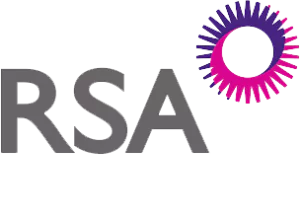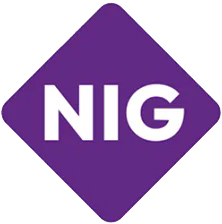Pesticide Product Liability Insurance: Manufacturing & Distribution Coverage
The pesticide industry operates in one of the most heavily regulated and liability-sensitive sectors in the UK. From manufacturing facilities produc…






Pesticide and agricultural chemical retailers operate in one of the most highly regulated and potentially hazardous commercial environments. From storing and handling toxic substances to ensuring regulatory compliance and managing environmental liability, your business faces unique risks that standard commercial insurance policies simply cannot adequately address.
At Insure24, we understand the complex challenges facing pesticide shops and agricultural supply businesses. Our specialized insurance solutions are designed specifically for businesses dealing with crop protection products, fertilizers, and other agricultural chemicals. We recognize that your operations require expert knowledge of regulatory requirements, environmental risks, and the potential for catastrophic liability claims.
Pesticide shops face exposure to risks that can result in devastating financial consequences. A single incident involving chemical spillage, contamination, or improper application advice could lead to environmental cleanup costs, third-party liability claims, and regulatory penalties that could destroy an unprotected business. Standard commercial insurance policies typically exclude or severely limit coverage for pollution-related incidents and chemical hazards.
Our pesticide shop insurance policies are built from the ground up to address these specific exposures. We work with insurers who understand the agricultural chemical industry and can provide the comprehensive protection your business needs to operate with confidence.
The pesticide industry is subject to extensive regulation under various UK and EU legislation, including the Plant Protection Products Regulation, COSHH regulations, and environmental protection laws. Our insurance solutions not only provide financial protection but also support your compliance efforts through risk management resources and expert guidance.
We understand that your business must maintain detailed records, follow strict storage protocols, and ensure proper training for all staff handling chemicals. Our policies are designed to work alongside your compliance programs, providing the security you need while supporting your commitment to safe and responsible operations.
Pesticide shop insurance premiums typically range from £2,000 to £15,000 annually, with costs varying significantly based on the specific chemicals handled, storage volumes, and operational complexity. Understanding the factors that influence your premium can help you make informed decisions about coverage and risk management.
Investing in proper risk management not only protects your business but can also lead to significant premium reductions. Our risk management specialists can help you implement best practices that demonstrate your commitment to safe operations while potentially lowering your insurance costs.
Environmental Protection Coverage
Essential coverage for pollution incidents, chemical spills, and environmental contamination. This is often the most critical coverage for pesticide shops, as cleanup costs can reach millions of pounds.
Chemical Product Protection
Coverage for claims arising from the pesticides and chemicals you sell, including crop damage, environmental harm, and health-related issues from product use or misuse.
Advisory Service Protection
If you provide application advice, pest management recommendations, or technical guidance, this coverage protects against claims of inadequate or incorrect professional advice.
Third-Party Protection
Enhanced public liability coverage designed for chemical retailers, providing protection against customer injuries and property damage on your premises.
Premises and Stock Protection
Specialized coverage for buildings and contents, including chemical storage facilities, specialized ventilation systems, and containment equipment.
Enhanced Staff Protection
Comprehensive coverage for employees working with hazardous chemicals, including enhanced limits for chemical exposure claims and occupational health issues.
Operational Continuity Protection
Coverage for lost income and additional expenses when your business cannot operate due to covered incidents, including contamination events and regulatory shutdowns.
Transportation Risk Coverage
Specialized coverage for transporting hazardous chemicals, including enhanced liability limits and environmental cleanup coverage for transportation incidents.
Pesticide shops face an extensive array of risks that require specialized understanding and comprehensive insurance protection. Our risk assessment considers all aspects of chemical handling, storage, and retail operations.
The pesticide retail industry continues to evolve with changing regulations, environmental concerns, and technological advances. Understanding these trends and implementing best practices is crucial for both risk management and business success.
Growing demand for organic and biological pest control products is reshaping the industry. Pesticide shops are expanding their product lines to include biopesticides, organic alternatives, and integrated pest management solutions. This trend requires updated insurance coverage to address new product liability exposures and changing customer expectations.
Modern pesticide shops are increasingly relying on digital inventory management systems, online ordering platforms, and mobile applications for customer service. This digital shift creates new cyber security risks and requires enhanced data protection measures, making cyber insurance increasingly important.
The rise of precision agriculture technologies means pesticide shops are becoming advisors on application timing, dosage optimization, and targeted treatments. This expanded advisory role increases professional indemnity exposure and requires specialized knowledge and training.
Environmental regulations continue to tighten, with increased scrutiny on chemical storage, handling procedures, and environmental impact. Compliance costs are rising, and regulatory violations carry heavier penalties, making comprehensive insurance coverage more critical than ever.
The pesticide industry operates under a complex web of UK and EU regulations that continue to evolve. Key regulatory frameworks include:
Governs the authorization, sale, and use of pesticides in the UK, including storage requirements, labeling standards, and distribution controls.
Requires risk assessments, control measures, and health surveillance for workers exposed to hazardous chemicals.
Addresses environmental contamination, waste disposal, and pollution prevention requirements for chemical retailers.
Establishes general duties for workplace safety, particularly relevant for businesses handling hazardous substances.
The pesticide retail industry is experiencing significant technological transformation that affects both operations and risk profiles:
RFID tracking, automated reordering systems, and digital inventory controls are improving accuracy while creating new cyber security risks that require appropriate insurance coverage.
Advanced analytics help optimize product recommendations and application timing, but also increase professional liability exposure as shops provide more sophisticated advisory services.
Online sales platforms expand market reach but require enhanced product liability coverage and cyber security measures to protect customer data and transaction information.
Customer-facing apps for product information, ordering, and advice create new touchpoints for liability exposure and require comprehensive professional indemnity coverage.

I just bought an Insure24 pesticide shop insurance policy, for my business partner's and me, and saved £1205 a year!
Steve Powell , Safe StorageDon't leave your pesticide shop exposed to unnecessary risks.
Our specialist team will assess your venue's unique needs and provide a comprehensive insurance solution that protects your business, your customers, and your livelihood.
Call us now: 0330 127 2333
Or get an instant online quote at insure24.co.uk
What makes pesticide shop insurance different from standard commercial insurance?
Pesticide shop insurance is specifically designed to cover the unique risks of handling hazardous chemicals, including pollution liability, product liability for toxic substances, and enhanced coverage for chemical-related health claims that standard policies typically exclude.
How much does pesticide shop insurance cost annually?
Pesticide shop insurance typically costs between £2,000 to £15,000 annually, depending on factors like chemical types stored, storage volumes, location, and business activities. High-risk operations may require higher premiums.
Is pollution liability insurance mandatory for pesticide shops?
While not legally mandatory, pollution liability insurance is essential for pesticide shops due to the high risk of environmental contamination. Cleanup costs can reach millions of pounds, making this coverage critical for business survival.
What coverage limits are recommended for pesticide shops?
We recommend minimum coverage of £5 million for pollution liability, £5-10 million for public liability, £10 million for employers' liability, and £1-10 million for professional indemnity, depending on your specific operations and risk exposure.
What insurance do I need to open a pesticide shop in the UK?
To open a pesticide shop in the UK, you need pollution liability insurance (minimum £5 million), public liability insurance (£5-10 million), employers' liability insurance, product liability coverage, and professional indemnity insurance if providing advice. Buildings and contents insurance is also essential for protecting your premises and chemical stock.
How much does agricultural chemical retailer insurance cost?
Agricultural chemical retailer insurance typically costs £2,000-£15,000 annually, depending on chemical types stored, storage volumes, location risk factors, and business turnover. High-risk operations with restricted pesticides may require premiums at the higher end of this range.
Does pesticide shop insurance cover groundwater contamination?
Yes, pollution liability insurance covers groundwater contamination from chemical spills or leaks. This includes cleanup costs, third-party claims from affected property owners, and regulatory fines. Cleanup costs can reach millions of pounds, making this coverage essential.
Are chemical storage facilities covered under pesticide shop insurance?
Yes, specialized buildings insurance covers chemical storage facilities, including warehouses, containment systems, ventilation equipment, and fire suppression systems. This coverage is designed specifically for hazardous chemical storage requirements.
What happens if my pesticide advice causes crop damage?
Professional indemnity insurance covers crop damage claims resulting from incorrect pesticide advice, application recommendations, or mixing instructions. Coverage typically ranges from £1-10 million and includes legal defense costs and compensation payments.
Professional indemnity insurance covers crop damage claims resulting from incorrect pesticide advice, application recommendations, or mixing instructions. Coverage typically ranges from £1-10 million and includes legal defense costs and compensation payments.
Yes, pesticide delivery requires specialized goods in transit insurance with enhanced environmental liability coverage. Standard delivery insurance excludes hazardous materials, so you need coverage specifically designed for chemical transportation risks.
Is theft of expensive pesticides covered by insurance?
Yes, contents insurance covers theft of pesticide stock, including high-value restricted-use chemicals. However, you must maintain proper security measures as required by your insurer, including secure storage, alarm systems, and access controls.
What about insurance for pesticide mixing and custom application services?
Custom mixing and application services require enhanced professional indemnity coverage, specialized equipment insurance, and higher public liability limits. These services create additional exposure to crop damage and environmental contamination claims.
Does business interruption insurance cover regulatory shutdowns?
Specialized business interruption coverage can include regulatory shutdown protection, covering lost income when authorities temporarily close your operation due to compliance issues, contamination events, or safety violations.
Are pesticide recall costs covered by insurance?
Product recall insurance covers costs associated with removing contaminated or defective pesticides from the market, including notification costs, product retrieval, disposal, and business interruption from the recall event.
What insurance covers pesticide spills during transport?
Specialized goods in transit insurance with pollution liability coverage protects against chemical spills during transportation. This includes emergency response costs, environmental cleanup, and third-party claims from contamination incidents.
Do I need cyber insurance for my pesticide shop?
Yes, cyber insurance is increasingly important for pesticide shops using digital inventory systems and customer databases. Data breaches involving chemical purchase records and customer information create significant liability and regulatory compliance issues.
What about coverage for employee chemical exposure claims?
Enhanced employers' liability insurance covers employee chemical exposure claims, including acute poisoning, chronic health effects, and occupational diseases. Coverage limits are typically higher than standard policies due to the severity of potential chemical-related health claims.
Are fire suppression systems for chemical storage covered?
Yes, specialized fire suppression systems designed for chemical storage are covered under buildings insurance. This includes foam systems, dry chemical systems, and other specialized firefighting equipment required for pesticide storage facilities.
What insurance do I need for restricted-use pesticide sales?
Restricted-use pesticides require enhanced coverage including higher pollution liability limits, specialized storage coverage, enhanced security requirements, and additional professional indemnity coverage for advisory services related to these products.
Does pesticide shop insurance cover soil contamination cleanup?
Yes, pollution liability insurance covers soil contamination cleanup costs, including excavation, treatment, and disposal of contaminated soil. This coverage is essential as soil remediation can cost hundreds of thousands of pounds.
Are there insurance discounts for certified pesticide retailers?
Yes, many insurers offer premium discounts for certified pesticide retailers with recognized qualifications, comprehensive staff training programs, excellent safety records, and robust compliance procedures. These factors demonstrate reduced risk exposure.
What about coverage for pesticide container disposal costs?
Environmental liability coverage includes proper disposal costs for contaminated pesticide containers, packaging materials, and cleanup equipment. This ensures compliance with hazardous waste disposal regulations and associated costs.
Do I need separate coverage for organic pesticide products?
While organic pesticides may have lower toxicity, they still require specialized coverage for product liability, contamination issues, and regulatory compliance. Some insurers offer adjusted premiums for businesses focusing on organic and biological pest control products.
What insurance covers pesticide equipment breakdown?
Equipment breakdown insurance covers specialized pesticide handling equipment, mixing systems, application equipment, and storage infrastructure. This includes repair costs and consequential losses from equipment failures affecting chemical storage or handling.
The pesticide industry operates in one of the most heavily regulated and liability-sensitive sectors in the UK. From manufacturing facilities produc…
Pesticide drift represents one of the most significant liability risks facing agricultural businesses, commercial …
The agricultural and pest control industries rely heavily on pesticides to protect crops and manage pest populations. However, when these chemical products pose unexpe…
Certified organic farming operations face unique risks that conventional farms don't encounter. When your livelihood depends on maintaining organic certification…
Professional pesticide applicators face unique risks that standard business insurance simply cannot address. From environmental liability to regulatory compliance, licens…
The transportation of pesticides and agricultural chemicals presents unique challenges that require specialized insurance coverage. Whether you're an agricu…
Pesticide storage facilities face unique and significant risks that require specialized insurance coverage. From chemical spills and en…
Agricultural businesses, landscaping companies, pest control services, and garden centers face significa…
The pest control industry plays a crucial role in maintaining public health and safety across the UK. From restaurants and hotels to residential properties …
When you're in the business of pest control, agricultural consulting, or pesticide application advice, your expertise directly impacts c…
In today's agricultural landscape, pesticides play a crucial role in crop protection and yield optimization. However, the use of agricultural chemicals comes with significant risk…
The use of pesticides in agriculture, pest control, and land management creates significant liability exposures that standard business insurance policies often excl…